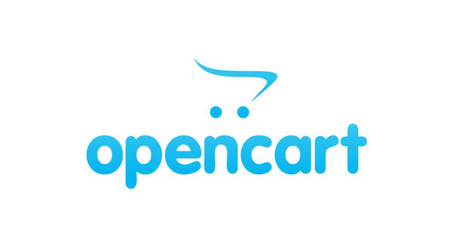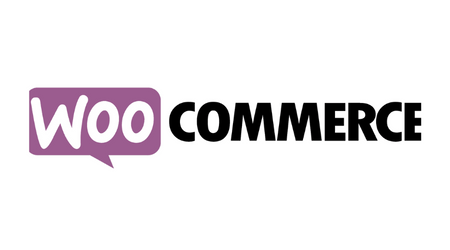The difference between supply chain and logistics explained

[et_pb_section fb_built=”1″ _builder_version=”3.22″][et_pb_row _builder_version=”3.25″ background_size=”initial” background_position=”top_left” background_repeat=”repeat”][et_pb_column type=”4_4″ _builder_version=”3.25″ custom_padding=”|||” custom_padding__hover=”|||”][et_pb_text _builder_version=”4.9.4″ background_size=”initial” background_position=”top_left” background_repeat=”repeat” hover_enabled=”0″ header_2_text_color=”#E02B20″ header_2_font_size=”24px” header_3_text_color=”#E02B20″ header_3_font_size=”24px” header_4_font_size=”24px” header_4_text_color=”#E02B20″ sticky_enabled=”0″]
Many people do not know the difference between supply chain management and logistics, and the terms “supply chain” and “logistics” are often used interchangeably in the transport and trade sector, but there are differences between them, as each has specific operations, duties, and responsibilities Which differs from the other extreme, and it is believed that the confusion in the distinction between supply chain and logistics is caused by many people considering that logistics is a subcategory in supply chain management, but the main difference between supply chain and logistics is that the latter is just a dedicated part in the operations of The entire supply chain, and in this article we will detail the difference between supply chain and logistics.
What is the supply chain?
In order to be able to differentiate between supply chain and logistics, we will first need to learn about the concept of each; the supply chain is a broad and integrated process that entails many other aspects besides logistics,
Such as finding and selling goods, negotiating prices, manufacturing, warehousing, packaging, and inventory control.
Supply chain management also includes distribution, cost allocation, control, negotiation and collaboration with third party companies as well as supply and demand management.
What is logistics?

After we know the definition of supply chains, we will need to know what is meant by logistics and will know The difference between supply chain and logistics, and in general logistics services focus on the transportation and physical storage of goods, and deal with things such as shipping method like internal and external shipping, reverse shipping, communications in transit, and warehouse warehousing.
Logistics also deals with the delivery of goods, freight shipping, coordination between external third party carriers, fleet management and other activities directly related to the actual transportation of goods from one point to another.
Depending on the company’s needs, logistics management may also include manufacturing, packaging, price negotiation for various aspects of transportation, integration with third party companies, procurement, technology and communications, and customer service.
The difference between supply chain and logistics
When learning about the difference between supply chain and logistics, you should know that supply chain is the bigger picture between the two.
As supply chain management is the umbrella that covers all aspects of sourcing and purchasing goods, basically supply chain management forms and manages business links between companies that allow goods to be sold to consumers in the end.
Logistics—essentially shipping logistics from one place to another—is a function that falls under the broad umbrella of supply management, and is just one part of the entire process.
Examining KPIs: Supply chain vs. logistics
The KPIs are similar in both Supply Chain Management and Logistics, they both track inventory movements and warehousing, and the following are the KPIs for each and what difference between supply chain and logistics:
I. Supply Chain Management KPIs
1. Cash-to-cash cycle
The difference between supply chain and logistics at the Cash-to-cash cycle is an indicator related to supply chain management that measures the time taken for the cash you paid for materials to be converted into cash that customers pay you for your work or service.
The fast cash-to-cash cycle is a good indicator and means better and faster cash flow, and the opposite means that there is restricted and unusable cash.
2. Inventory days of supply
An indicator of how many days it takes to run out of supply if you don’t replenish your inventory, the higher this metric is, the better for your organization and means your organization is able to generate more cash.
3. Perfect order rate
The difference between supply chain and logistics at the Perfect order rate It is also one of the important indicators of supply chain management, which measures error rates taking into account the multiple aspects of the supply chain, and the higher this indicator, the more it indicates that the stages of the supply chain are good, which increases customer satisfaction.
II. logistics KPIs
1. Freight bill accuracy
It is a performance metric for logistics that measures the accuracy of shipping invoices. It is a useful metric in monitoring the efficiency of your business.
And helps you in estimating customer satisfaction levels with the service you provide to them. The higher the percentage, the higher the level of customer satisfaction and the lower the costs.
2. Transportation costs
It is a measure of checking the percentage cost of moving inventory based on sales revenue,
And the higher this number, the not a good sign, it means more your company is spending on shipping its merchandise compared to what it will recover.
3. Inventory turnover
It is one of the most important and also common performance metrics for logistics services. It is a measure that shows you how many times you have sold through your inventory during a given period of time.
The higher this indicator is, this is a good indication that your company has a strong customer demand for your products, and this is a good thing.
Should Small and medium-sized companies outsource their supply chain management or logistics functions?

Outsourcing refers to the process of hiring another individual or company to handle some of your business activities. It is not a new concept, but it gained a lot of importance in the early 1990s.
Companies can outsource some tasks and easily get skilled and experienced assistants, thus saving time, money and effort as well.
As for the basic question, should small and medium-sized businesses outsource supply chain management or logistics functions?
In fact, the answer to this question depends on the nature and size of your business and your business.
If you own a small business it is better for you and your business not to outsource your supply chain management, if you are a medium business it is better to hire them, when you can do it all on your own without outsourcing.
Outsourcing helps you make your supply chain easier by controlling the many errors that occur, such as missing shipment tracking or suddenly running out of stock.
In general, in logistics services, especially transportation operations, it is recommended that outsourcing is done, in order to reduce costs and reduce errors that may lead to the loss of customer satisfaction and consequently their loss. and this is The difference between supply chain and logistics in this point.
Advantages of outsourcing logistics
There are a number of advantages that outsourcing fast logistics services can provide to you, and the following are the most important ones:
- Reduce focus on freight, outsourcing logistics helps you get your employees to focus on important value-added activities related to other parts of the business, and leave the freight operations on those outside sources.
- Access to better technology, outsourcing logistics helps you to access more advanced technology, which will save a lot of time, effort and money as well.
- Improve Flexibility Outsourcing significantly improves the flexibility of your business, helping your company to expand and grow bigger and faster.
- Better resource allocation, outsourcing helps you save costs on additional overheads and focus on better allocating your resources.
[/et_pb_text][/et_pb_column][/et_pb_row][/et_pb_section]














